Company Details
restaurant-brands-international
8,688
193,624
722
rbi.com
0
RES_2754323
In-progress
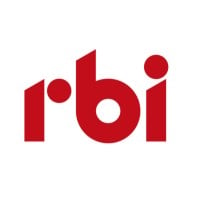
Restaurant Brands International Company CyberSecurity Posture
rbi.comRestaurant Brands International Inc. is one of the world's largest quick service restaurant companies with nearly $45 billion in annual system-wide sales and over 32,000 restaurants in more than 120 countries and territories. RBI owns four of the world's most prominent and iconic quick service restaurant brands – TIM HORTONS®, BURGER KING®, POPEYES®, and FIREHOUSE SUBS®. These independently operated brands have been serving their respective guests, franchisees and communities for decades. Through its Restaurant Brands for Good framework, RBI is improving sustainable outcomes related to its food, the planet, and people and communities.
Company Details
restaurant-brands-international
8,688
193,624
722
rbi.com
0
RES_2754323
In-progress
Between 750 and 799

 RBI Global Score (TPRM)
RBI Global Score (TPRM)XXXX

Description: Ethical hackers **BobDaHacker** and **BobTheShoplifter** exposed severe security vulnerabilities within **Restaurant Brands International (RBI)**, the parent company of Burger King, Tim Hortons, and Popeyes. The flaws included **hard-coded passwords** (e.g., 'admin') in HTML and drive-through systems, **plain-text passwords sent via email**, and an **unrestricted API** allowing unauthorized admin access. The hackers gained entry to **employee accounts, internal configurations, raw audio recordings of drive-through conversations** (containing customer personal data processed by AI), and even **restaurant bathroom rating systems**. The breaches revealed **catastrophic oversight** in cybersecurity fundamentals, with no basic safeguards like antivirus checks or system audits. While the ethical hackers responsibly disclosed the issues and confirmed **no customer data was retained**, the exposure demonstrated how easily malicious actors could have exploited these gaps. RBI reportedly fixed the vulnerabilities post-disclosure but did not publicly acknowledge the researchers, raising concerns about long-term security improvements. The incident underscores systemic negligence in protecting **30,000+ global outlets** from potential data leaks, financial fraud, or operational disruptions.


Restaurant Brands International has 138.1% more incidents than the average of same-industry companies with at least one recorded incident.
Restaurant Brands International has 56.25% more incidents than the average of all companies with at least one recorded incident.
Restaurant Brands International reported 1 incidents this year: 0 cyber attacks, 0 ransomware, 0 vulnerabilities, 1 data breaches, compared to industry peers with at least 1 incident.
RBI cyber incidents detection timeline including parent company and subsidiaries

Restaurant Brands International Inc. is one of the world's largest quick service restaurant companies with nearly $45 billion in annual system-wide sales and over 32,000 restaurants in more than 120 countries and territories. RBI owns four of the world's most prominent and iconic quick service restaurant brands – TIM HORTONS®, BURGER KING®, POPEYES®, and FIREHOUSE SUBS®. These independently operated brands have been serving their respective guests, franchisees and communities for decades. Through its Restaurant Brands for Good framework, RBI is improving sustainable outcomes related to its food, the planet, and people and communities.

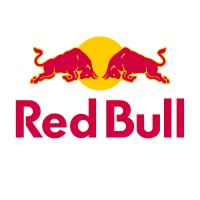
Red Bull Gives Wiiings to People and Ideas. This has driven us – and all we do – since 1987. Today, Red Bull operates in over 170 countries, selling more than 12 billion cans annually and growing! Above all, our people remain the essential ingredient in bringing the Red Bull brand to life. Check out

Arca Continental produces, distributes and sells non-alcoholic beverages under The Coca-Cola Company brand, as well as snacks under the brands of Bokados in Mexico, Inalecsa in Ecuador and Wise in the US. With an outstanding history spanning more than 98 years, Arca Continental is the second-larges

As the world’s largest food and beverage company we are driven by a simple aim: unlocking the power of food to enhance quality of life for everyone, today and for generations to come. To deliver on this, we serve with passion, with a spirit of excellence, offering products and services for all stage
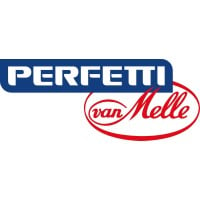
Perfetti Van Melle is a privately owned company, producing and distributing candies and chewing gums in more than 150 countries worldwide. Employing over 17.000 people and operating 37 companies throughout the world, Perfetti Van Melle has a true global reach: it is present in the Asia Pacific Reg
As China’s leading dairy manufacturer, Mengniu focuses on producing nutritional, healthy and tasty dairy products for customers worldwide. 20 years of experiences enabled Mengniu to develop a diversified product matrix, including liquid milk, ice-cream, infant formula, cheese and etc. The company ha
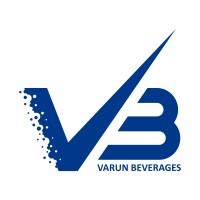
Varun Beverages Limited (VBL) is one of the top FMCG players in the Indian Market. We are on track towards strengthening our position in the global beverage industry with our presence in 14 countries in the Indian sub-continent and Africa - where we are responsible for producing popular brands like

Coca-Cola Consolidated is the largest Coca-Cola bottler in the United States. Our Purpose is to honor God in all we do, serve others, pursue excellence, and grow profitably. For over 120 years, we have been deeply committed to the consumers, customers, and communities we serve and are passionate abo

Coffee is at the heart of everything we do, and consumer satisfaction is why we do it. Our story started with one simple idea: everyone should be able to make the perfect cup of coffee at home. Something we still believe today, which is why we think delivering the highest quality coffee, sip after
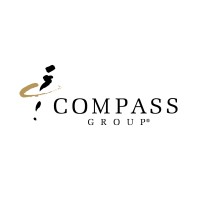
Compass Group is redefining the food and facility services landscape with innovation and passion through the lens of what’s next. Serving premier healthcare systems, respected educational institutions, world-renowned cultural centers, popular sporting and entertainment venues, and Fortune 500 organi
.png)
Restaurant Brands International Inc. (NYSE: QSR) (TSX: QSR) (TSX: QSP) ("RBI") announced today that Josh Kobza, Chief Executive Officer,...
Earlier in November 2025, Restaurant Brands International announced a joint venture with Chinese asset manager CPE to grow Burger King's...
Restaurant Brands International (NYSE:QSR) is making a major move in China, teaming up with CPE to triple the number of Burger King outlets...
Restaurant Brands International Limited Partnership (TSX:QSP.UN) shares have edged higher recently, climbing nearly 2% over the past month...
Restaurant Brands International Inc. ("RBI" or the "Company") (TSX: OSR) (NYSE: QSR) announced today that an underwritten registered public...
Restaurant Brands International Inc. ("RBI" or the "Company") (TSX: QSR) (NYSE: QSR) announced today that Restaurant Brands International...
Over the next decade, the joint venture aims to more than double Burger King's footprint in China.
Restaurant Brands International said on Monday Chinese firm CPE will invest about $350 million in Burger King China as part of a joint...
What are the early trends we should look for to identify a stock that could multiply in value over the long term...

Explore insights on cybersecurity incidents, risk posture, and Rankiteo's assessments.
The official website of Restaurant Brands International is http://www.rbi.com.
According to Rankiteo, Restaurant Brands International’s AI-generated cybersecurity score is 762, reflecting their Fair security posture.
According to Rankiteo, Restaurant Brands International currently holds 0 security badges, indicating that no recognized compliance certifications are currently verified for the organization.
According to Rankiteo, Restaurant Brands International is not certified under SOC 2 Type 1.
According to Rankiteo, Restaurant Brands International does not hold a SOC 2 Type 2 certification.
According to Rankiteo, Restaurant Brands International is not listed as GDPR compliant.
According to Rankiteo, Restaurant Brands International does not currently maintain PCI DSS compliance.
According to Rankiteo, Restaurant Brands International is not compliant with HIPAA regulations.
According to Rankiteo,Restaurant Brands International is not certified under ISO 27001, indicating the absence of a formally recognized information security management framework.
Restaurant Brands International operates primarily in the Food and Beverage Services industry.
Restaurant Brands International employs approximately 8,688 people worldwide.
Restaurant Brands International presently has no subsidiaries across any sectors.
Restaurant Brands International’s official LinkedIn profile has approximately 193,624 followers.
Restaurant Brands International is classified under the NAICS code 722, which corresponds to Food Services and Drinking Places.
Yes, Restaurant Brands International has an official profile on Crunchbase, which can be accessed here: https://www.crunchbase.com/organization/restaurant-brands-international.
Yes, Restaurant Brands International maintains an official LinkedIn profile, which is actively utilized for branding and talent engagement, which can be accessed here: https://www.linkedin.com/company/restaurant-brands-international.
As of November 27, 2025, Rankiteo reports that Restaurant Brands International has experienced 1 cybersecurity incidents.
Restaurant Brands International has an estimated 8,392 peer or competitor companies worldwide.
Incident Types: The types of cybersecurity incidents that have occurred include Breach.
Detection and Response: The company detects and responds to cybersecurity incidents through an incident response plan activated with yes (after ethical hacker disclosure), and containment measures with patch applied to vulnerabilities (reportedly), and communication strategy with no public acknowledgment of ethical hackers or incident details..
Common Attack Types: The most common types of attacks the company has faced is Breach.
Identification of Attack Vectors: The company identifies the attack vectors used in incidents through Hard-coded password in HTMLDefault 'admin' password in drive-through tabletsUnrestricted API signup.
Commonly Compromised Data Types: The types of data most commonly compromised in incidents are Employee Credentials, Internal Configurations, Audio Recordings (Potential Pii), Operational Data and .
Incident Response Plan: The company's incident response plan is described as Yes (after ethical hacker disclosure).
Handling of PII Incidents: The company handles incidents involving personally identifiable information (PII) through by patch applied to vulnerabilities (reportedly) and .
Key Lessons Learned: The key lessons learned from past incidents are Systemic neglect of basic cybersecurity practices (e.g., hard-coded passwords, plain-text credentials, unrestricted APIs) can expose global enterprises to severe risks. Ethical hacking revealed critical gaps in access controls, credential management, and operational security across RBI’s brands.
Additional Resources: Stakeholders can find additional resources on cybersecurity best practices at and Source: Tom’s Hardware, and Source: Ethical Hackers’ Blog (Archived).
Communication of Investigation Status: The company communicates the status of incident investigations to stakeholders through No public acknowledgment of ethical hackers or incident details.
Corrective Actions Taken: The company has taken the following corrective actions based on post-incident analysis: Patches Applied To Reported Vulnerabilities (Per Rbi), No Public Confirmation Of Broader Security Overhaul Or Policy Changes, .
Last Attacking Group: The attacking group in the last incident was an BobDaHacker (Ethical Hacker)BobTheShoplifter (Ethical Hacker).
Most Significant Data Compromised: The most significant data compromised in an incident were Employee account credentials, Internal system configurations, Drive-through audio recordings (potential PII), Restaurant operational data (e.g., bathroom rating screens) and .
Most Significant System Affected: The most significant system affected in an incident was Equipment ordering websiteDrive-through tablet systemsAI-powered customer/staff evaluation systemsRestaurant management APIsBathroom rating screens.
Containment Measures in Most Recent Incident: The containment measures taken in the most recent incident was Patch applied to vulnerabilities (reportedly).
Most Sensitive Data Compromised: The most sensitive data compromised in a breach were Internal system configurations, Employee account credentials, Drive-through audio recordings (potential PII), Restaurant operational data (e.g. and bathroom rating screens).
Most Significant Lesson Learned: The most significant lesson learned from past incidents was Systemic neglect of basic cybersecurity practices (e.g., hard-coded passwords, plain-text credentials, unrestricted APIs) can expose global enterprises to severe risks. Ethical hacking revealed critical gaps in access controls, credential management, and operational security across RBI’s brands.
Most Significant Recommendation Implemented: The most significant recommendation implemented to improve cybersecurity was Restrict API access with proper authentication/authorization, Implement robust password policies and multi-factor authentication (MFA), Establish a transparent vulnerability disclosure program, Monitor dark web for exposed credentials or system access, Conduct regular security audits and penetration testing, Train employees on secure credential handling and phishing risks and Eliminate hard-coded credentials and enforce encryption for sensitive data.
Most Recent Source: The most recent source of information about an incident are Ethical Hackers’ Blog (Archived) and Tom’s Hardware.
Current Status of Most Recent Investigation: The current status of the most recent investigation is Completed (by ethical hackers; RBI applied fixes but no public report).
.png)
Angular is a development platform for building mobile and desktop web applications using TypeScript/JavaScript and other languages. Prior to versions 19.2.16, 20.3.14, and 21.0.1, there is a XSRF token leakage via protocol-relative URLs in angular HTTP clients. The vulnerability is a Credential Leak by App Logic that leads to the unauthorized disclosure of the Cross-Site Request Forgery (XSRF) token to an attacker-controlled domain. Angular's HttpClient has a built-in XSRF protection mechanism that works by checking if a request URL starts with a protocol (http:// or https://) to determine if it is cross-origin. If the URL starts with protocol-relative URL (//), it is incorrectly treated as a same-origin request, and the XSRF token is automatically added to the X-XSRF-TOKEN header. This issue has been patched in versions 19.2.16, 20.3.14, and 21.0.1. A workaround for this issue involves avoiding using protocol-relative URLs (URLs starting with //) in HttpClient requests. All backend communication URLs should be hardcoded as relative paths (starting with a single /) or fully qualified, trusted absolute URLs.
Forge (also called `node-forge`) is a native implementation of Transport Layer Security in JavaScript. An Uncontrolled Recursion vulnerability in node-forge versions 1.3.1 and below enables remote, unauthenticated attackers to craft deep ASN.1 structures that trigger unbounded recursive parsing. This leads to a Denial-of-Service (DoS) via stack exhaustion when parsing untrusted DER inputs. This issue has been patched in version 1.3.2.
Forge (also called `node-forge`) is a native implementation of Transport Layer Security in JavaScript. An Integer Overflow vulnerability in node-forge versions 1.3.1 and below enables remote, unauthenticated attackers to craft ASN.1 structures containing OIDs with oversized arcs. These arcs may be decoded as smaller, trusted OIDs due to 32-bit bitwise truncation, enabling the bypass of downstream OID-based security decisions. This issue has been patched in version 1.3.2.
Suricata is a network IDS, IPS and NSM engine developed by the OISF (Open Information Security Foundation) and the Suricata community. Prior to versions 7.0.13 and 8.0.2, working with large buffers in Lua scripts can lead to a stack overflow. Users of Lua rules and output scripts may be affected when working with large buffers. This includes a rule passing a large buffer to a Lua script. This issue has been patched in versions 7.0.13 and 8.0.2. A workaround for this issue involves disabling Lua rules and output scripts, or making sure limits, such as stream.depth.reassembly and HTTP response body limits (response-body-limit), are set to less than half the stack size.
Suricata is a network IDS, IPS and NSM engine developed by the OISF (Open Information Security Foundation) and the Suricata community. In versions from 8.0.0 to before 8.0.2, a NULL dereference can occur when the entropy keyword is used in conjunction with base64_data. This issue has been patched in version 8.0.2. A workaround involves disabling rules that use entropy in conjunction with base64_data.

Get company history
















Every week, Rankiteo analyzes billions of signals to give organizations a sharper, faster view of emerging risks. With deeper, more actionable intelligence at their fingertips, security teams can outpace threat actors, respond instantly to Zero-Day attacks, and dramatically shrink their risk exposure window.
Identify exposed access points, detect misconfigured SSL certificates, and uncover vulnerabilities across the network infrastructure.
Gain visibility into the software components used within an organization to detect vulnerabilities, manage risk, and ensure supply chain security.
Monitor and manage all IT assets and their configurations to ensure accurate, real-time visibility across the company's technology environment.
Leverage real-time insights on active threats, malware campaigns, and emerging vulnerabilities to proactively defend against evolving cyberattacks.




